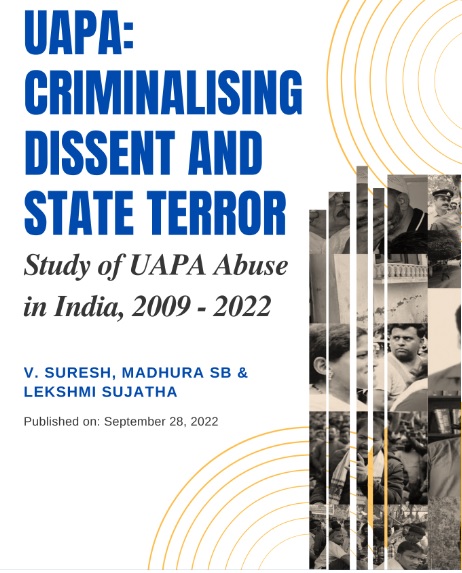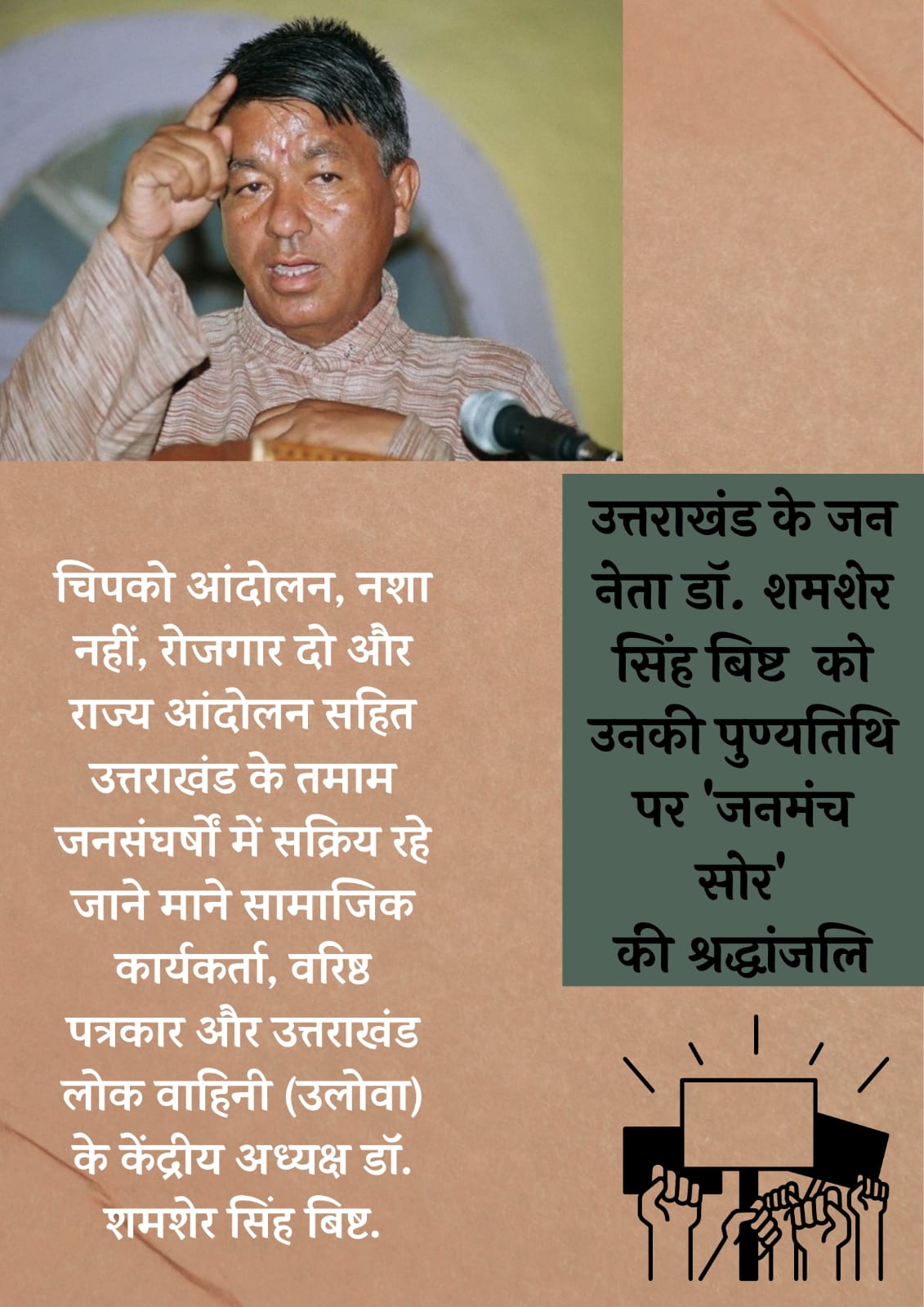UAPA: Criminalising Dissent & State Terror
 Analysis of the data so collected and segregated would help expose if Sec. 18 was used deliberately only for the purpose of implicating persons under UAPA to ensure that they did not get bail easily.
Analysis of the data so collected and segregated would help expose if Sec. 18 was used deliberately only for the purpose of implicating persons under UAPA to ensure that they did not get bail easily.
What is significant is that 152/238 cases (or 64%) cases involving Sec. 18 charge are in
respect of cases where there is no allegation of a terrorist act or an actual incident of terror
involving the use of weapons or causing physical injury is reported to have taken place. In other
words, in more than half (64%) of the UAPA cases involving Sec.18 charge, the mere allegation
of the police that a person is a member of a proscribed terrorist organisation or that a recovery
of weapon/explosives/money/drugs were made from him is sufficient to get the person arrested
and imprisoned for many years.
Those arrested under UAPA languish in jail sometimes even for decades, waiting for their
trial to begin. By the time they are acquitted, the damage is complete; an irreparable damage is
done to several aspects of their lives, inflicting pain and trauma on them and on all those
dependent on them...
By beginning to document the scale of abuse faced by thousands
under this law and by formulating a comprehensive database on all UAPA prosecutions across
the country, the dangers in the ambiguities of the UAPA law and its draconian provisions
become all the more striking. The objective is also to stimulate more discussions and encourage
more research on the constitutional, moral, ethical and human consequences of the UAPA and
the NIA, as we all come together and demand the repeal of the law.
We ask of the civil societies to be more vigilant, to come together and raise their voices
against the flagrant state abuse. We urge the political parties and leaders of the entire political
spectrum to aid in strengthening the demand to repeal the draconian UAPA and other such laws
which should not have a place in a constitutional democracy where rule of law is upheld
We
seek your support through the following actions:
1. Demand repeal of UAPA.
2. Demand repeal of all other anti-people laws.
3. Demand repeal of the NIA Act and disbanding of NIA.
4. Demand the immediate release of all political prisoners, on bail.
5. Take action against all police officials who have wilfully launched false and
fabricated cases against the marginalised communities, journalists, academicians,
students and others.
6. Take action to provide reparations for those wrongfully accused and released by
courts.
A legend of Uttarakhand Dr. Shamsher Singh Bisht is no more
 A legend of Uttarakhand Dr. Shamsher Singh Bisht is no more. https://www.newsviewsnetwork.com/a-legend-of-uttarakhand-dr-shamsher-singh-bisht-is-no-more-dies-at-73/ INDIAA legend of Uttarakhand Dr. Shamsher Singh Bisht is no more.
A legend of Uttarakhand Dr. Shamsher Singh Bisht is no more. https://www.newsviewsnetwork.com/a-legend-of-uttarakhand-dr-shamsher-singh-bisht-is-no-more-dies-at-73/ INDIAA legend of Uttarakhand Dr. Shamsher Singh Bisht is no more.
The land of abode of Gods Uttarakhand has today lost a relentless fighter, journalist, author, an ideologue, a social reformer, a committed activist, prominent Uttrakhand separate state activist n leader and the former student and youth leader with progressive ideals and principles.
He was an active participant and a youth pioneer in various movements such as Chipko, Nasha Nahi Rojgaar Do, movements for environmental protection and for the conservation of forests, water and land in Uttarakhand. Dr. Shamsher Singh Bisht regularly wrote on the soci economic, cultural, environmental and societal issues of Uttarakhand in the leading state dailies n other vernacular periodicals like Jan Satta, Amar Ujala, Dainik Jagran, Nav Bharat Times, etc.
शमशेर सिंह बिष्ट https://www.nainitalsamachar.org/shamsher-singh-bisht/
शमशेर सिंह बिष्ट के जन्मदिन पर विशेष : सुनो उस राजा की कहानी | पास ना जिसके घोड़ा पालकी ना थी राजधानी
Corporatising Agriculture - Not just Adani, Global Capital
Corporatising Agriculture and Foreign Investors -Farmer-owned Sahyadri Farms has raised Rs 310 crore from a group of European investors By Jayashree Bhosale Sep 14, 2022, https://economictimes.indiatimes.com/news/company/corporate-trends/farmer-owned-sahyadri-farms-has-raised-rs-310-crore-from-a-group-of-european-investors/articleshow/94202814.cms Foreign investment story of Sahyadri FPO is now become the discussion points amongst all of us mainly in the development and FPO sector.
Page 25 of 51
